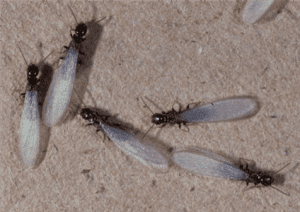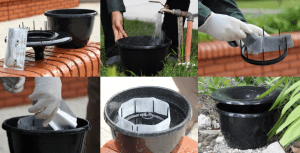During the summer, it is not unheard of for people to use various pesticides in and around their homes to help fight the inevitable horde of insects and other pests that will try to invade during the warmer weather months. Most of these household pesticides can be toxic, not just to the pests that we are trying to eliminate, but also to our household pets.
According to the National Center for Biotechnology Information, approximately 14 percent of veterinary emergencies are due to pesticide poisoning and the rate of calls grows exponentially during the summer months. To help our customers (both two- and four-legged), we have compiled a list of how to avoid, identify, and care for your pets in regards to a possible case of pesticide poisoning.
How Do Pets Become Affected?
Our pets, for the most part, are curious by nature. This curiosity, coupled with their moist noses, help animals to absorb whatever substances they may be investigating. It is also possible for many carnivorous animals to ingest poisons by eating a pest or rodent that may have been killed by ingesting that poison, themselves. It is also possible for an animal to eat certain plants that could have been treated with pesticides to control garden and/or yard pests. Even laying in an affected area could harm your pet if they absorb the pesticide through their skin or by cleaning their fur after laying in the substance for any amount of time. There is also the possibility that the flea and tick protection you may have been using on your pets could eventually become harmful to their health since the solutions themselves are toxic to animals, which is why they are prescribed in such low doses.
How to Spot Symptoms
Poisoning symptoms can vary by the degree of the exposure or type of poison. Some of the signs to keep an eye out for are fever, vomiting, nausea, hyper-drooling, lack of concentration, lethargy, and diarrhea. The more severe cases can also involve seizures, respiratory failure, increased heart-rates, and strange or agitated behavior from your pet.
What to do If You Suspect Poisoning
When it comes to possible pesticide poisoning, time is of the utmost importance. The first thing you will want to do is to call your vet or a pet poisoning hotline. Even low-dose poisoning is life-threatening, so time is crucial.
Other suggested actions for a concerned pet owner include immediately removing the pet from the affected area/home, collecting a sample of the substance for your vet to test, and refraining from attempting to induce vomiting or trying any home remedies as these can be more harmful to the pet in a case of pesticide poisoning.
In addition, if poisoning is suspected but there are no symptoms yet, being safe is better than waiting for symptoms to appear. Not only is it healthier for your pet, but it is also cheaper to begin proactive treatments.
We love our fur babies just as much as our customers love their pets so we use products that are safe for both people and pets. Even the rodenticides we use have a bitter taste to dogs and cats to deter animals from ingesting the pesticides.
Many times it can be the misuse of toxic pesticides that cause the most harm to unsuspecting animals. You can rest assured that we thoroughly train our staff in the proper application of all our trustworthy products to ensure that both your family and your pets are safe. We encourage you to always ask how pest control companies are protecting you and your family with the use of their products. We strive to provide the safest, most effective means possible. If we can help to keep the pests away for you this summer, and the rest of the year, contact us online or by phone, today.
Little Rock: 501-228-0322
North Little Rock: 501-758-0322
Conway: 501-329-0396
Benton: 501-776-1388
Bryant: 501-847-1388
Jacksonville/Cabot: 501-843-1322
Hot Springs: 501-623-2335




